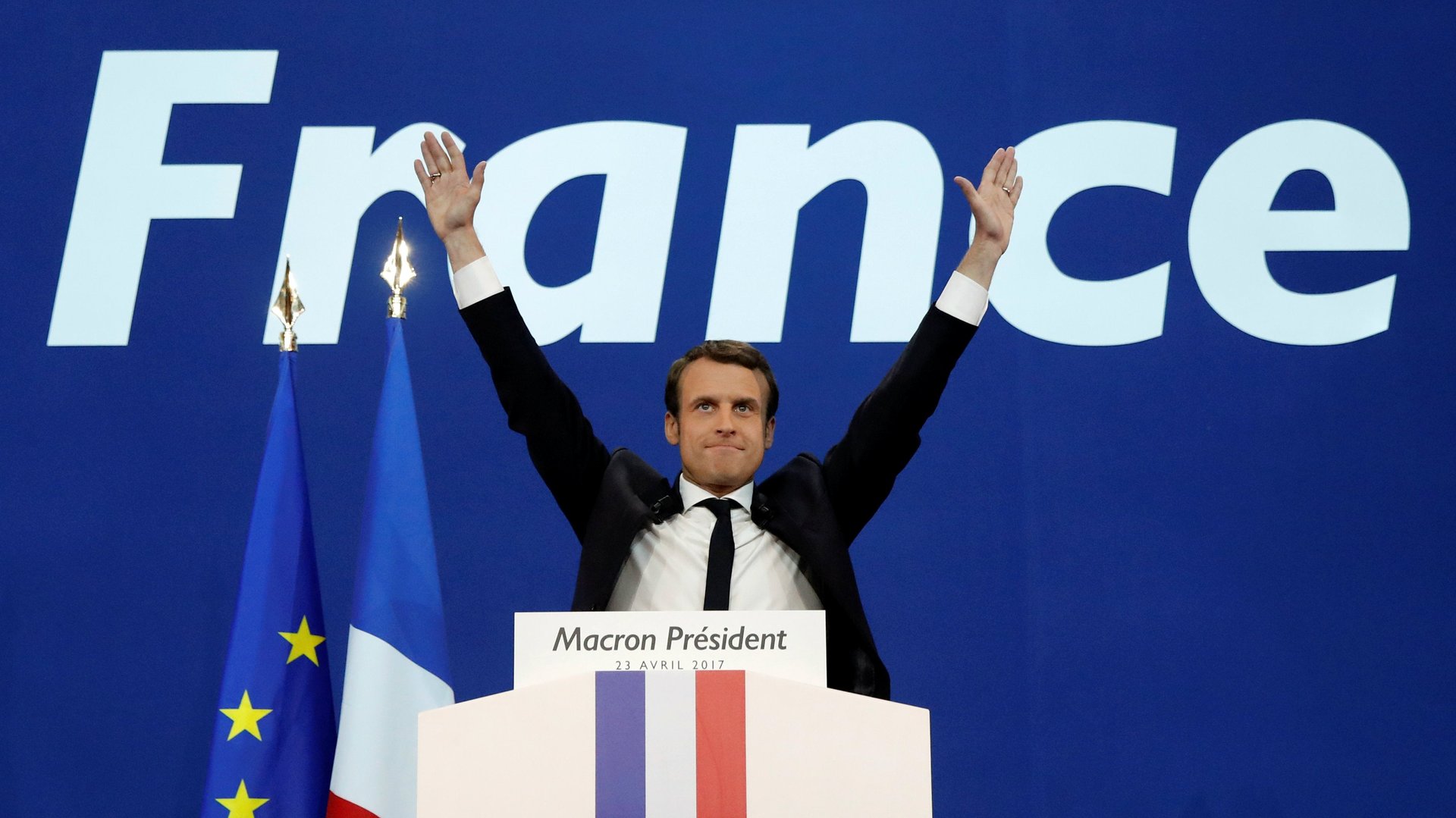French banks celebrate a former French banker’s presidential campaign with a huge market rally
It’s a good day to be a banker. Yesterday, Emmanuel Macron won the first round of France’s presidential election and is a strong favorite to defeat far-right populist Marine Le Pen in the second round in two weeks. Macron, a 39-year-old centrist, may never have held elected office before, but boasts experience that makes the financial industry swoon: a four-year stint at investment bank Rothschild.


It’s a good day to be a banker. Yesterday, Emmanuel Macron won the first round of France’s presidential election and is a strong favorite to defeat far-right populist Marine Le Pen in the second round in two weeks. Macron, a 39-year-old centrist, may never have held elected office before, but boasts experience that makes the financial industry swoon: a four-year stint at investment bank Rothschild.
This morning, European markets breathed an near-audible sigh of relief that Macron is probably heading for the presidency. The euro jumped, French government bonds rallied, and the region’s stocks surged—France’s stock market gained more than 4% and Germany’s set an all-time record. The biggest winners were the banks, not just in France, but across Europe. The market value of France’s biggest bank, BNP Paribas, jumped by a whopping €6 billion ($6.5 billion) in early trading.
Polls suggest that Macron has a more than 20-point lead over Le Pen ahead of the run-off vote on May 7. Le Pen wants France to ditch the euro, quit the European Union, and impose a range of protectionist measures on the economy. This makes markets fear for the value of French assets, such as national debt denominated in euros. On the other hand, Macron is a pro-market globalist (befitting a former banker) who campaigns with both the French and EU flags on prominent display.
For now, the biggest existential risk facing France, and Europe, seems to have faded. Investors responded by pouring money into European assets, betting that things will be better… at least until the next crisis comes along.